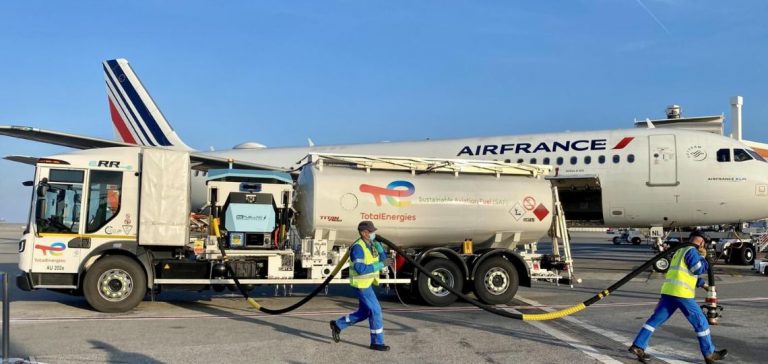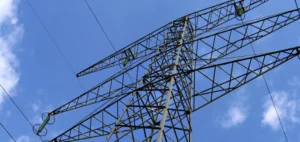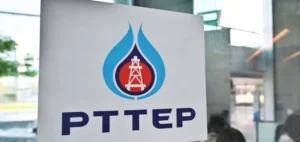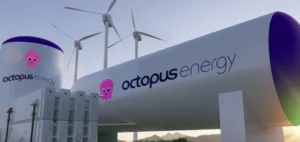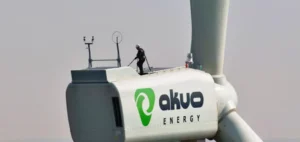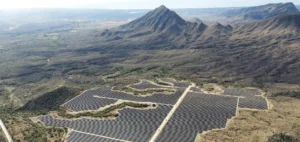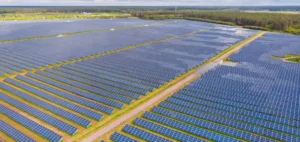Air France-KLM has consolidated its commitment to reducing CO2 emissions by signing an agreement with TotalEnergies to supply 1.5 million tonnes of sustainable aviation fuel (SAF) over a ten-year period.
This strategic agreement is part of a wider drive to integrate more biofuels into the aviation sector, in line with European directives on emissions reduction.
This type of fuel is derived from waste and residues from the circular economy, enabling a significant reduction in CO2 emissions compared with traditional fuels.
For several years now, Air France-KLM has been implementing measures to reduce its carbon footprint. This collaboration with TotalEnergies, which began in 2014, represents an important new step in this approach.
The objective is clear: to achieve an incorporation of at least 10% SAF in all the Group’s flights by 2030, in parallel with fleet renewal and the adoption of operational measures such as eco-piloting.
European sustainable fuel production on the rise
SAF production in Europe is still limited, but is expanding rapidly.
TotalEnergies is playing a central role in this expansion, with substantial investments in its refineries and biorefineries in France and Europe.
At Grandpuits, the Group has transformed its site into a zero-oil platform with an investment of 400 million euros, mainly dedicated to the production of biofuels.
From 2025, this facility will produce 210,000 tonnes of SAF per year, boosting Europe’s production capacity for sustainable fuels.
Other sites, such as the Gonfreville refinery in Normandy, also support this dynamic.
By 2025, TotalEnergies plans to produce up to 160,000 tonnes of SAF a year.
These developments are part of a strategy to diversify biofuel production, enabling us to meet growing demand in the aviation sector while complying with European emission reduction targets.
Evolving regulations to support the transition
The European airline industry has to meet growing obligations in terms of decarbonization.
Regulations, such as those requiring a gradual increase in the share of sustainable fuels in flights, are prompting airlines to rapidly adapt their supplies.
The French SAF incorporation mandate requires airlines to fly with a minimum percentage of sustainable fuels, a measure that will be reinforced over the decade.
Air France-KLM relies on this regulation to accelerate the integration of biofuels into its daily operations, while seeking to exceed legal requirements.
TotalEnergies, for its part, strives to support these initiatives by producing fuels that meet the most stringent sustainability standards, certified by bodies such as RSB and ISCC.
The aim is to ensure that the SAF used by Air France-KLM does not compete with food chains, thus meeting rigorous sustainability criteria.
Challenges and prospects for sustainable aviation
Increasing the production of sustainable fuels in Europe remains a challenge.
Despite massive investment in production infrastructure, demand for this type of fuel far exceeds current supply.
The development of new production capacities, such as those planned at Grandpuits and Gonfreville, will be essential to meet the sector’s growing needs.
At the same time, airlines are facing higher costs associated with the use of FAS, a factor which could have repercussions on ticket prices if no subsidy or economic support solutions are put in place by European governments.
However, the outlook remains encouraging.
With the gradual increase in production and the adoption of new technologies, production costs should fall over time, making FAS more accessible to the industry as a whole.
Air France-KLM, with its long-term commitment and strategic partnerships with players such as TotalEnergies, seems well positioned to meet these challenges and play a key role in the energy transition of air transport in Europe.

